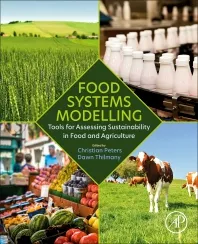This book discusses how food systems models can be used to understand both the impacts of agriculture and food across multiple dimensions of sustainability and the ability of the food system to provide nutrition despite global environmental change.

Publisher’s summary
Food Systems Modelling emphasizes sustainability, including the impact of agriculture and food production on profits, people and environment, with a particular focus on the ability of humanity to continue producing food in the midst of global environmental change. Sections introduce the purpose of models, the definition of a food system, the importance of disciplinary, interdisciplinary, and transdisciplinary inquiry, cover specific branches of modeling in the sustainability of food systems, and wrestle with the challenge of communicating modeling research and appropriately integrating multiple dimensions of sustainability. This book will be a welcomed reference for food scientists, agricultural scientists, nutritionists, environmental scientists, ecologists, economists, those working in agribusiness and food supply chain management, community and public health, and urban and regional planning, as well as academicians and graduate students interested in the sustainability of food systems.
Reference
Peters, C. and Thilmany, D. (2022). Food Systems Modelling: Tools for Assessing Sustainability in Food and Agriculture. Elsevier, Amsterdam.
Read more here. See also the TABLE explainer Environmental impacts of food: an introduction to LCA.




Comments (0)